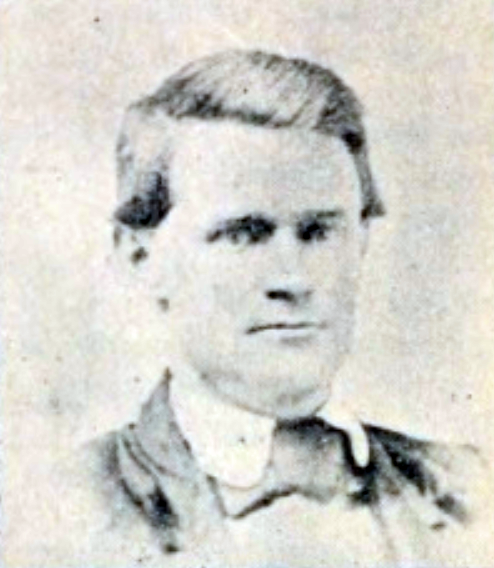Editor’s note: The following article by Col. H. A. Brown is extracted from the Confederate Veteran, Vol. 7 (published 1899).
Of all the hosts of heroes who offered their lives upon the altar of their country, there was none more freely given than that of Col. William M. Barbour, of the Thirty-Seventh regiment, North Carolina troops. Fearless and generous, he was a true type of the Confederate soldier, and by his devotion to principle and duty he has left a priceless legacy to his country and kindred. From the beginning his success was assured in any undertaking, for so much energy and determination as he possessed was rarely seen in any individual.
Col. Barbour was a native of Rowan County, N. C. He graduated at St. James College, Md., in 1853. He studied law, and settled in Wilkesboro, N.C., and soon became one of the leading lawyers of Western North Carolina. In 1859 he married Miss Ada S. Alexander, of Mecklenburg, a charming woman who proved a helpmeet indeed.
At the beginning of the war he raised a company and joined the Thirty-Seventh regiment, then forming at High Point, N.C., and was elected lieutenant colonel, C. C. Lee, a West Pointer, being elected colonel. The regiment, one of the best in the service, was first in Branch’s brigade, and afterwards in Lane’s, A. P. Hill’s light division, Army of Northern Virginia. Col. Lee having been killed at Frazier’s farm, Lieut. Col. Barbour succeeded to the colonelcy of the regiment, and with his regiment participated in all of the principal battles in which that army was engaged.
He was ever ready and able to take the lead in battle, and was complimented for gallantry on many bloody fields by several general officers, and especially by Gen. A. P. Hill. He also served with distinction as judge advocate of his division. On May 12, 1864, at the battle of Spottsylvania, Col. Barbour was captured by the enemy, and with “the six hundred Confederate officers” was taken to Charleston. S.C., and afterwards to Savannah and placed under the fire of the Confederate batteries at those places.
After enduring this savage mode of warfare for many days, which was equaled in atrocity only by the acts of the Duke of Alva in the low country, the Spanish Inquisition, or the march of Sherman and his bummers to the sea (in whose wake the echo of the widows’ wail and orphans’ cry will be heard for many generations to come), he was finally exchanged, and, although very much weakened and emaciated by the brutal treatment that he had received at the hands of the enemy, he rejoined his command and entered at once upon his duty with extraordinary vigor. Col. Barbour was wounded at Frazier’s Farm, Fredericksburg, Chancellorsville, Gettysburg, and received his mortal wounds on September 30, 1864, at Petersburg, while gallantly leading Lane’s brigade, from which he died on October 3, after suffering intense agony.
At his death the heart of the great Lee was touched, and he afterwards wrote a letter to his little son, Eddie Barbour, now a distinguished lawyer of Springfield, Mo. Read it, young men of the South, for it is worthy of your consideration. Henceforth the extract is the common property of all Confederates of the younger generations:
“Permit me to urge upon you to study in your youth the precepts of the Holy Bible, to practice virtue in preference to all things, and to avoid falsehood and deception of every kind, which will be sure to debase the mind and lead to every vice and misery.” “Keep constantly in mind the conduct of your father and endeavor to equal him in goodness, though you may fall short of him in greatness.”
Col. Barbour was rather low of statue, frank and decided in his manner, generous and noble in his disposition. With a countenance beaming with intelligence he made friends everywhere. North Carolina sent no truer patriot than he.










4.5